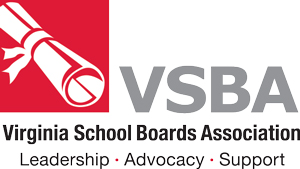How long have you been a school board member?
I have been a member of the Board since winning a special election in November 2015 to fill a seat left vacant by a resignation.
What do you do when you’re not working on School Board items?
I am active in several civic and fraternal organizations in my community. I also am active in my Church serving as a trustee, Sunday School teacher and musician.
Where do you turn for new ideas about serving your community?
I get new ideas by attending conventions the School Boards Association holds.
What are one or two education issues/topics/challenges that are especially important to you and why?
One challenge that is important is closing the achievement gap in our division. I believe that in order to be most effective we must do our best to meet the needs of all students.
What is the most important thing you’ve learned through your board service that you’d like to share with others?
The most important thing that I have learned is that we, as a school board, cannot be satisfied or content until all of our students are receiving the best possible education. We must prepare all of them to be productive citizens in the society that they will be a part of.
What is your motto as a board member?
“All means all.”
What do you feel is the best benefit of being a member of the VSBA?
The best benefit is exposure to programs/procedures that can benefit the students in our system.
How do you define Advocacy?
Advocacy is the process of promoting a cause that will be be beneficial to society. The process, if successful, will cause the majority of citizens to recognize the importance of the cause and work to promote it.
Why is advocacy important to you and your role as a school board member?
It is important to ensure that certain principles of our society and our educational system will not be abandoned or neglected.
What is the most challenging aspect of advocacy and how do you work to overcome it?
I have two aspects that are equally challenging. The first is securing funds necessary to meet the needs of our division. Our board works to overcome this challenge by developing relationships with our Board of Supervisors, our House of Delegate members, and State Senator. These elected officials provide the funds that we need.
The second challenge is the movement in certain parts of the Nation to rewrite portions of our curriculum or ban books that are not agreeable to some segments of society. This problem can be addressed by developing effective communications that will keep our citizens aware of the dangers of eliminating controversial areas from the curriculum.
